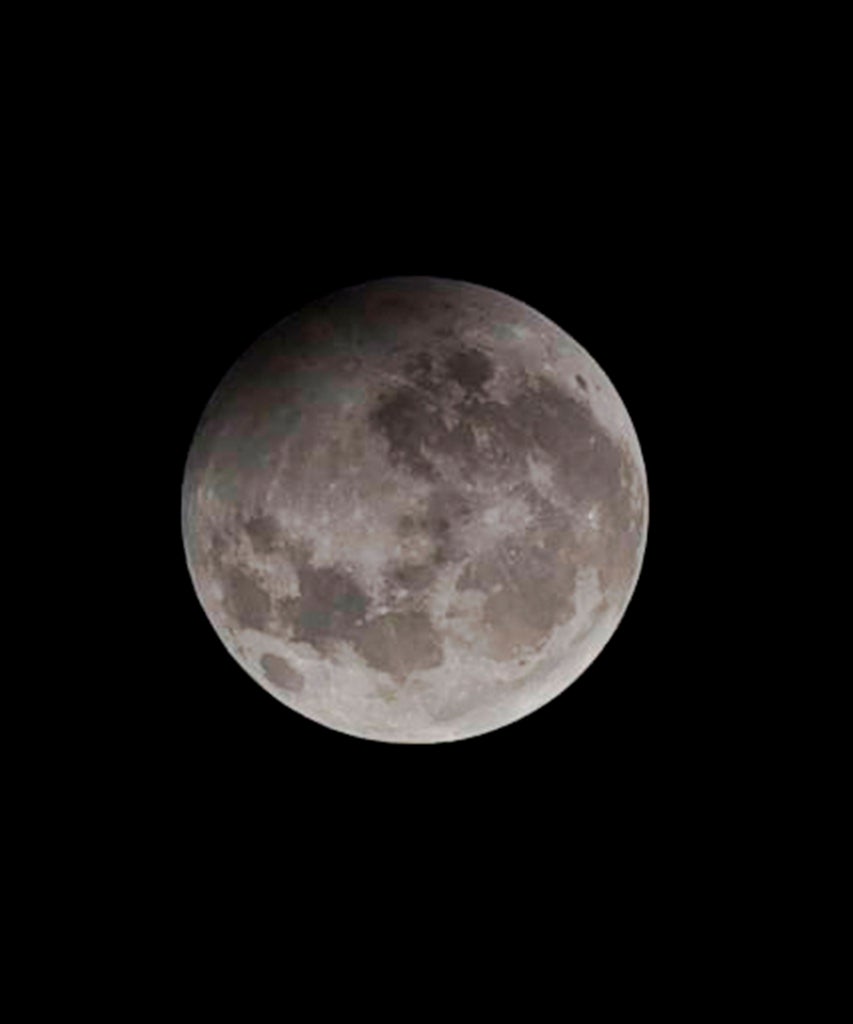
This weekend, we’ll be experiencing a lunar eclipse; specifically, a penumbral lunar eclipse. We’ve already talked a little bit about what that means for you astrologically, but… what exactly is the event, astronomically speaking?
A regular ol’ lunar eclipse occurs when the Earth blocks the sun’s light as it reflects off the moon. This can only happen during a full moon, and there are three kinds of lunar eclipses: total, partial, and penumbral.
A total lunar eclipse occurs when the Earth completely blocks the sun’s light from the moon. During a partial lunar eclipse, the Earth partially blocks the sun from the moon.
A penumbral lunar eclipse is a little more subtle. “During a penumbral lunar eclipse, the sun, Earth, and the moon are imperfectly aligned in a row,” astrologer Lisa Stardust tells Refinery29. “The Earth blocks some of the sun’s light from directly reaching the moon’s surface, and covers all or part of the moon with the outer part of its shadow, also known as the penumbra.” What this looks like: You might notice a faint shadow cast over part of the moon’s surface. Like we said — subtle.
Lunar eclipses are cool astronomical events, full stop. But the reason they get so many attention in the astrology world is because they involve the two luminaries that affect our lives the most — the sun and the moon, Narayana Montúfar, senior astrologer for Astrology.com and Horoscope.com, tells Refinery29. “Eclipses are turbo-charged lunations and the way the Universe creates change in our lives,” she says.
Similar to a full moon, a penumbral lunar eclipse brings along endings — sometimes in a way that makes them feel almost like destiny, Montúfar says. “What’s tricky about these eclipses is that those endings will not happen immediately, as they develop over the course of the next six months,” she explains. “And when they end something, they also begin something new, too.” Think of a penumbral lunar eclipse as the celestial version of the famous saying, “When one door closes, another one opens.”
Eclipses affect us individually, bringing positive or negative events, depending on what the particular eclipse does in our personal chart, according to Leslie Hale, psychic astrologer at Keen.com. “Sometimes an eclipse is dramatic, or reveals important information if it aspects a significant point in your own chart,” she says. “An eclipse often brings news pertaining to life’s biggest events, and our most significant life happenings often occur close to an eclipse.”
Eclipses are often described as wild cards. Montúfar says that the best way to handle their arrival is to be aware that anything’s possible, and to focus on going with the flow, since many of the changes they bring to our lives are non-negotiable.
“It’s not rare to feel very emotional during the days surrounding a lunar eclipse, since the energy of the moon is at its highest,” Montúfar notes. During the days leading up to a penumbral lunar eclipse, simplify your schedules. Figure out where your energy and attention is most needed, and let go of anything holding you back. Also, give yourself a lot of time to rest and relax.
Ultimately, penumbral eclipses can bring along much-needed change, or shine light on new and exciting opportunities. Pay attention, and take the time during this kind of eclipse to put you and your needs first.
Like what you see? How about some more R29 goodness, right here?